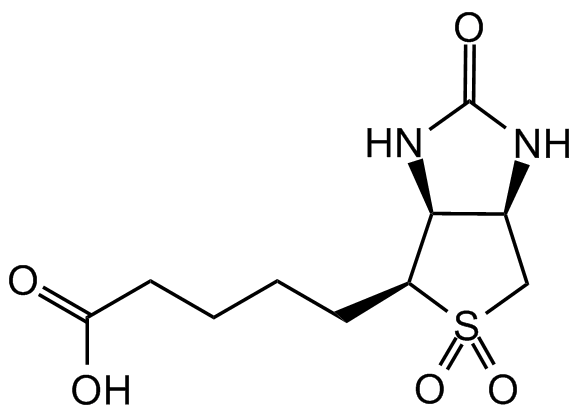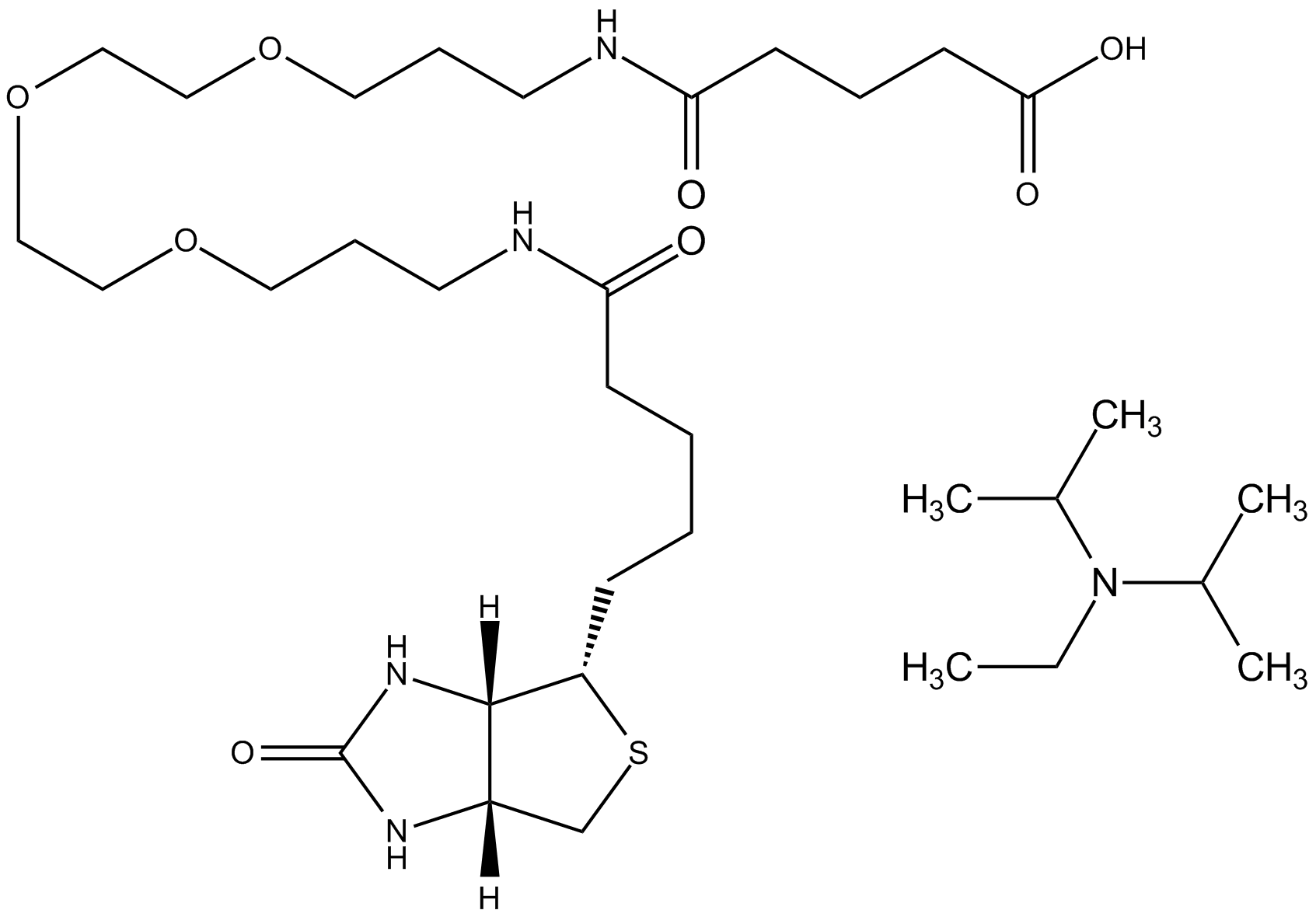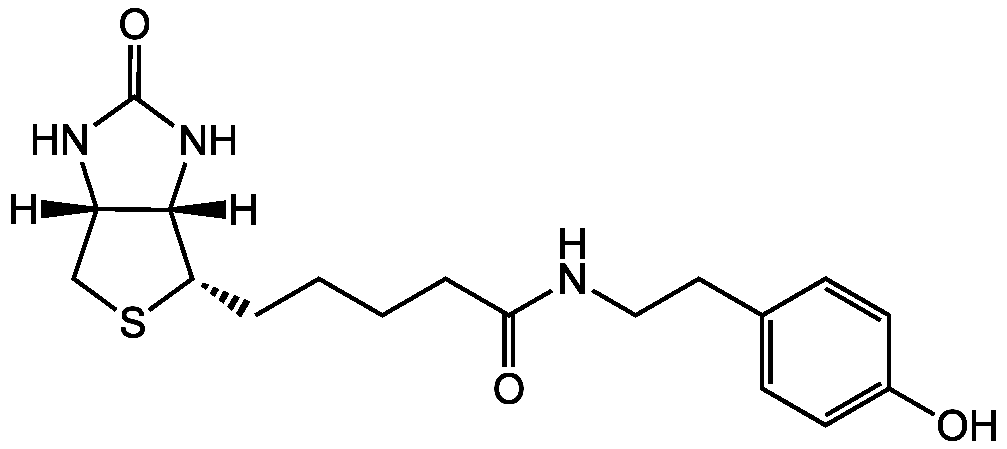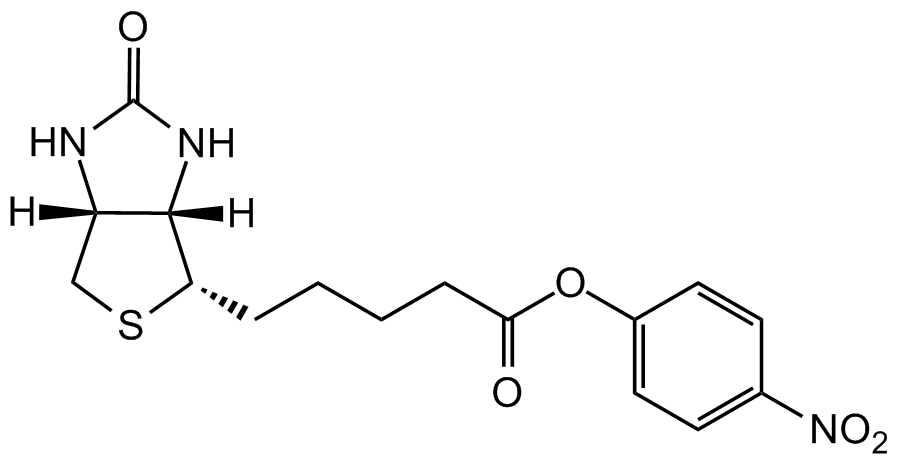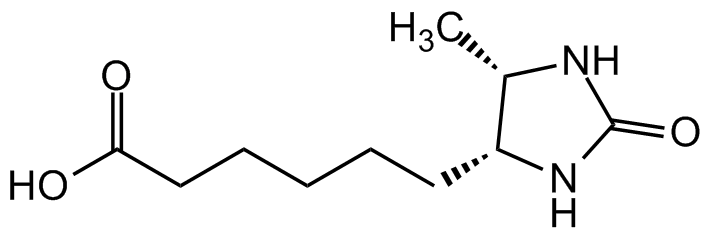
Chemical Structure
D-Biotin [58-85-5] [58-85-5]
CDX-B0148
Product group Molecular Biology
Overview
- SupplierChemodex
- Product NameD-Biotin [58-85-5] [58-85-5]
- Delivery Days Customer2
- CAS Number58-85-5
- CertificationResearch Use Only
- Estimated Purity>98%
- Molecular FormulaC10H16N2O3S
- Molecular Weight244.3
- Scientific DescriptionChemical. CAS: 58-85-5. Formula: C10H16N2O3S. MW: 244.3. Synthetic. D-(+)-Biotin, also known as vitamin H or coenzyme R, is a water-soluble B-vitamin (vitamin B7). D-(+)-Biotin is a cofactor responsible for carbon dioxide transfer in five carboxylase enzymes, such as acetyl-CoA carboxylase alpha, acetyl-CoA carboxylase beta, methylcrotonyl-CoA carboxylase, propionyl-CoA carboxylase or pyruvate carboxylase. It is important in fatty acid synthesis, branched-chain amino acid catabolism and gluconeogenesis. It covalently attaches to the epsilon-amino group of specific lysine residues in these carboxylases. This biotinylation reaction requires ATP and is catalyzed by holocarboxylase synthetase. Biotin is also covalently attached to distinct lysine residues in histones, affecting chromatin structure and mediating gene regulation. Biotin is widely used throughout the biotechnology industry to conjugate proteins for biochemical assays. Biotins small size means the biological activity of the protein will most likely be unaffected. This process is called biotinylation. Because both streptavidin and avidin bind biotin with high affinity (Kd of 10-14 mol/l to 10-15 mol/l) and specificity, biotinylated proteins of interest can be isolated from a sample by exploiting this highly stable interaction. The sample is incubated with streptavidin/avidin beads, allowing capture of the biotinylated protein of interest. The attachment of biotin to various chemical sites is used to study various processes, including protein localization, protein interactions, DNA transcription and replication. - D-(+)-Biotin, also known as vitamin H or coenzyme R, is a water-soluble B-vitamin (vitamin B7). D-(+)-Biotin is a cofactor responsible for carbon dioxide transfer in five carboxylase enzymes, such as acetyl-CoA carboxylase alpha, acetyl-CoA carboxylase beta, methylcrotonyl-CoA carboxylase, propionyl-CoA carboxylase or pyruvate carboxylase. It is important in fatty acid synthesis, branched-chain amino acid catabolism and gluconeogenesis. It covalently attaches to the epsilon-amino group of specific lysine residues in these carboxylases. This biotinylation reaction requires ATP and is catalyzed by holocarboxylase synthetase. Biotin is also covalently attached to distinct lysine residues in histones, affecting chromatin structure and mediating gene regulation. Biotin is widely used throughout the biotechnology industry to conjugate proteins for biochemical assays. Biotins small size means the biological activity of the protein will most likely be unaffected. This process is called biotinylation. Because both streptavidin and avidin bind biotin with high affinity (Kd of 10-14 mol/l to 10-15 mol/l) and specificity, biotinylated proteins of interest can be isolated from a sample by exploiting this highly stable interaction. The sample is incubated with streptavidin/avidin beads, allowing capture of the biotinylated protein of interest. The attachment of biotin to various chemical sites is used to study various processes, including protein localization, protein interactions, DNA transcription and replication.
- SMILES[H][C@]12CS[C@@H](CCCCC(O)=O)[C@@]1([H])NC(=O)N2
- Storage Instruction-20°C,2°C to 8°C
- UNSPSC41115800

